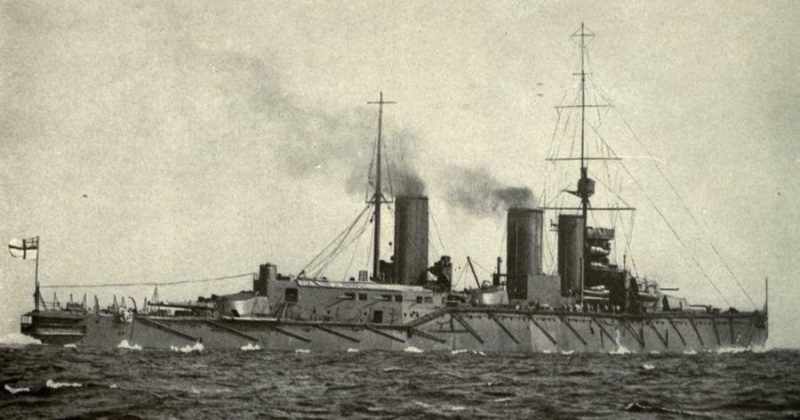The Dutch salvage firm Friendship Offshore is under fire from Maritime heritage organizations in the UK and in Denmark which have accused the company of looting the First World War HMS Queen Mary for scrap metal.
The Queen Mary exploded and sank in the Battle of Jutland killing 1,266 sailors. Her wreckage has been designated a maritime grave site by the UK.
The salvers allegedly forced entry into the Queen Mary’s hull to steal equipment and boiler components containing a percentage of bronze and copper.
The accusations renew claims revealed in May by The Pipeline and the BBC, and use photographic evidence which appears to show items of the Queen Mary on the deck of the vessel, the Good Hope, owned by the salvage, recovery, and wreck removal company.
Also coming under criticism is The UK Ministry of Defense for its assertion that it does not know of any unlawful salvage activity taking place on additional Battle of Jutland wreck locations.
Proponents state that they have given a succession of reports on a wide variety of government officials and politicians as well as the Secretary of State for Defense and the Ministry of Defense Police.
UK history news site ThePipeline explains that it was a common occurrence for the MoD to license scrapping rights for Royal Navy shipwrecks in the twentieth century. Vessels commercially salvaged with government permission included the Edinburgh, Aboukir, HMS Cressy, Hogue and the Vanguard.
After the Protection of Military Remains Act in 1986, the government can dissuade unlawful activity within UK waters and by UK nationals abroad by listing protected locations, The Maritime Executive reported.
The Jutland wrecks, which include the Queen Mary, were afforded this security in 2006. In addition, in international waters, the wrecks are supposedly safeguarded by international law as the relics of state-owned maritime craft – but MoD has not put forth an effort to administer these measures.
